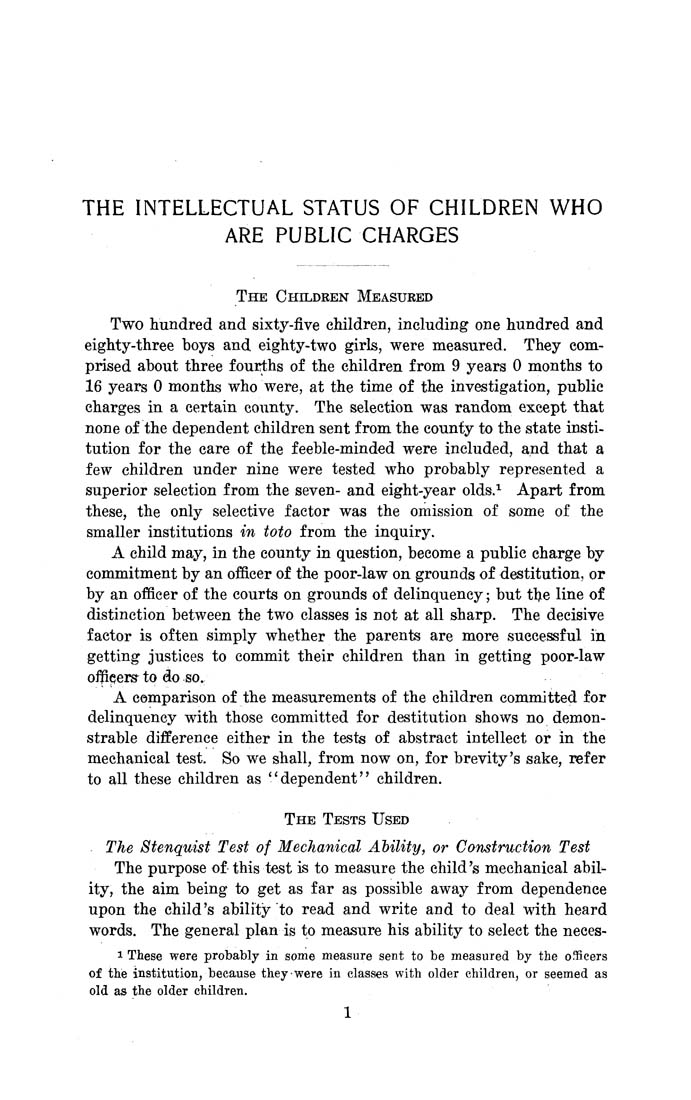THE INTELLECTUAL STATUS OF CHILDREN WHO
ARE PUBLIC CHARGES
The Children Measured
Two hundred and sixty-five children, including one hundred and
eighty-three boys and eighty-two girls, were measured. They com¬
prised about three fourths of the children from 9 years 0 months to
16 years 0 months who were, at the time of the investigation, public
charges in a certain county. The selection was random except that
none of the dependent children sent from the county to the state insti¬
tution for the care of the feeble-minded were included, and that a
few children under nine were tested who probably represented a
superior selection from the seven- and eight-year olds.^ Apart from
these, the only selective factor was the omission of some of the
smaller institutions in toio from the inquiry.
A child may, in the county in question, become a public charge by
commitment by an officer of the poor-law on grounds of destitution, or
by an officer of the courts on grounds of delinquency; but tbe line of
distinction between the two classes is not at all sharp. The decisive
factor is often simply whether the parents are more successful in
getting justices to commit their children than in getting poor-law
ofli^ers^ to do so.
A comparison of the measurements of the children committed for
delinquency with those committed for destitution shows no demon¬
strable difference either in the tests of abstract intellect or in the
mechanical test. So we shall, from now on, for brevity's sake, refer
to all these children as '*dependent" children.
The Tests Used
The Stenquist Test of Mechanical Ability, or Construction Test
The purpose of this test is to measure the child's mechanical abil¬
ity, the aim being to get as far as possible away from dependence
upon the child's ability to read and write and to deal with heard
words. The general plan is to measure his ability to select the neces-
1 These were probably in some measure sent to be measured by the officers
of the institution, because they were in classes with older children, or seemed as
old as the older children.
1
|








